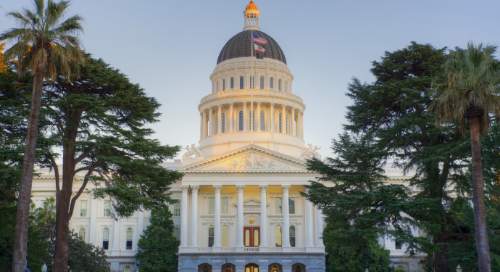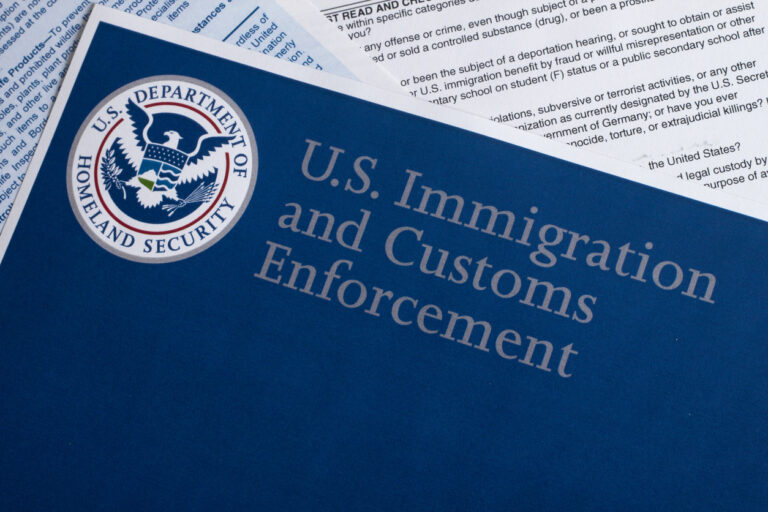This resource is provided by ACSA Partner4Purpose Lozano Smith.
September was a busy month for Governor Newsom, who signed into law several bills which will have a significant impact on public employers. Included in the new legislation are bills creating new State holidays; extending the statute of limitations for prosecution of mandated reporters for failure to report child abuse or neglect; and requiring continued health benefits for striking public employees.
Holidays
On September 29, 2022, Governor Newson signed both Assembly Bill (AB) 1655 and AB 1801 into law, effectively making June 19 and April 24 official California holidays and optional paid holidays for State employees.
AB 1655 – Juneteenth: In 2021, federal legislation was passed designating June 19 a new “legal public holiday” to be known as Juneteenth National Independence Day. AB 1655 clarifies that holidays created by federal legislation signed by the President are considered days appointed as holidays for the purpose of requiring community colleges and public schools to close. Beginning in 2023, Juneteenth is incorporated into Education Code sections 37220 and 79020 as one of these holidays. State employees will have the option of taking time off with pay in recognition of the holiday. Classified school and community college employees who are in paid status during any portion of the working day immediately preceding or succeeding the holiday shall be entitled to a paid holiday on Juneteenth. Note, this bill explicitly exempts Columbus Day from constituting a holiday appointed by the President.
AB 1801 – Genocide Remembrance Day: Beginning in 2023, April 24 will be known as “Genocide Remembrance Day.” AB 1801 permits, but does not require, public schools and community colleges to close on April 24. Similar to the Juneteenth holiday, State employees will have the option of taking time off with pay in recognition of Genocide Remembrance Day. Genocide Remembrance Day is not a required paid holiday for classified school and community college employees but may be deemed a paid holiday if the school or community college district and the applicable labor union together agree to designate it as such. For reference, this is similar to the way that schools treat Cesar Chavez Day. In addition, AB 1801 provides that public schools and educational institutions throughout California may include exercises remembering and honoring the many contributions that survivors of genocide have made to the United States. The bill further permits the State Board of Education to adopt a model curriculum guide to be available for use by public schools for exercises related to Genocide Remembrance Day.
Child Abuse or Neglect Reporting Act Violations (AB 2274)
The Child Abuse and Neglect Reporting Act (CANRA) designates certain professionals, including teachers, social workers, police officers, and others, as mandated reporters. Mandated reporters are required to report to law enforcement or county welfare department whenever they have knowledge of (or a reasonable suspicion of) specific child abuse or neglect. Mandated reporters who fail to report an incident of known or reasonably suspected child abuse or neglect are guilty of a misdemeanor. Previously, the statute of limitations for prosecution for failure to report was limited to one year after commission of the offense and five years from the date of occurrence of the offense for cases of sexual assault. Effective January 1, 2023, new Penal Code section 801.8, extends the statute of limitations for prosecution of mandated reporters who fail to report known or reasonably suspected cases of child abuse or neglect to four years after the offense was committed and permits prosecution of such offenses within one year of the discovery of the offense.
Health Benefits for Striking Employees (AB 237)
Effective January 1, 2023, AB 237 requires public employers to maintain employee health insurance and premium contributions while an employee participates in an authorized strike. An “authorized strike” is a strike sanctioned by the relevant central labor council or the membership of the union representing the striking employees. Essentially, AB 237 requires public employers to treat striking employees as if they are working for purposes of maintaining health coverage, including maintaining any contributions toward health care or other medical coverage. Under this new law, an employer’s failure to maintain health coverage and health care contributions (including collecting and remitting the employee’s contributions for health coverage) for striking employees will be deemed an unfair labor practice, subject to enforcement by the Public Employment Relations Board.
Public employers sometimes require an employee to be in paid status for a certain number of days in a month to receive the employer’s contribution towards any health insurance premiums. Prior to AB 237, the timing and/or duration of a strike potentially caused striking employees to forfeit the employer’s contribution in a given month. Employers can continue to implement and enforce the paid status rule for receiving employer contributions towards health insurance premiums, however, such rule cannot apply to a striking employee.
Takeaways
Public school districts and community colleges should prepare for closures for observance of Juneteenth and should be prepared to negotiate whether Genocide Remembrance Day will be a paid holiday. Additionally, public employers should be cognizant of the new timelines surrounding prosecution of mandated reporters, as well as of the duty to continue contributions to health insurance premiums for striking employees. We anticipate that labor unions may reach out to negotiate the impacts of these new holidays as well as the health benefit continuation for striking employees.
If you have any questions regarding the impacts of recently signed legislation on public employers, please contact the authors of this Client News Brief or an attorney at one of Lozano Smith’s eight offices located statewide.





























